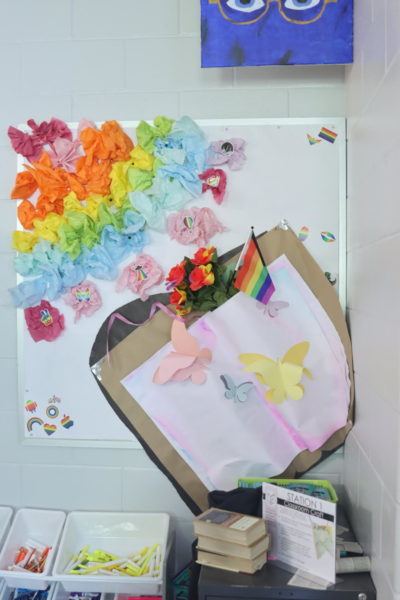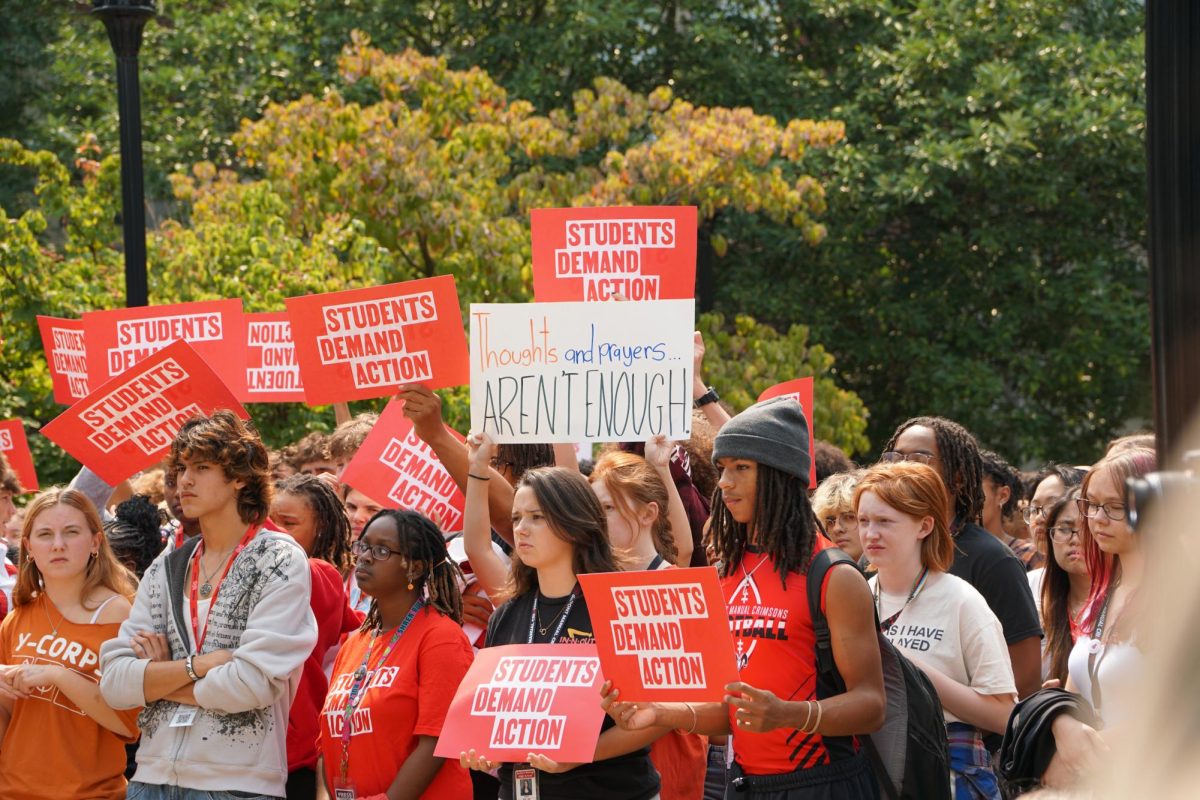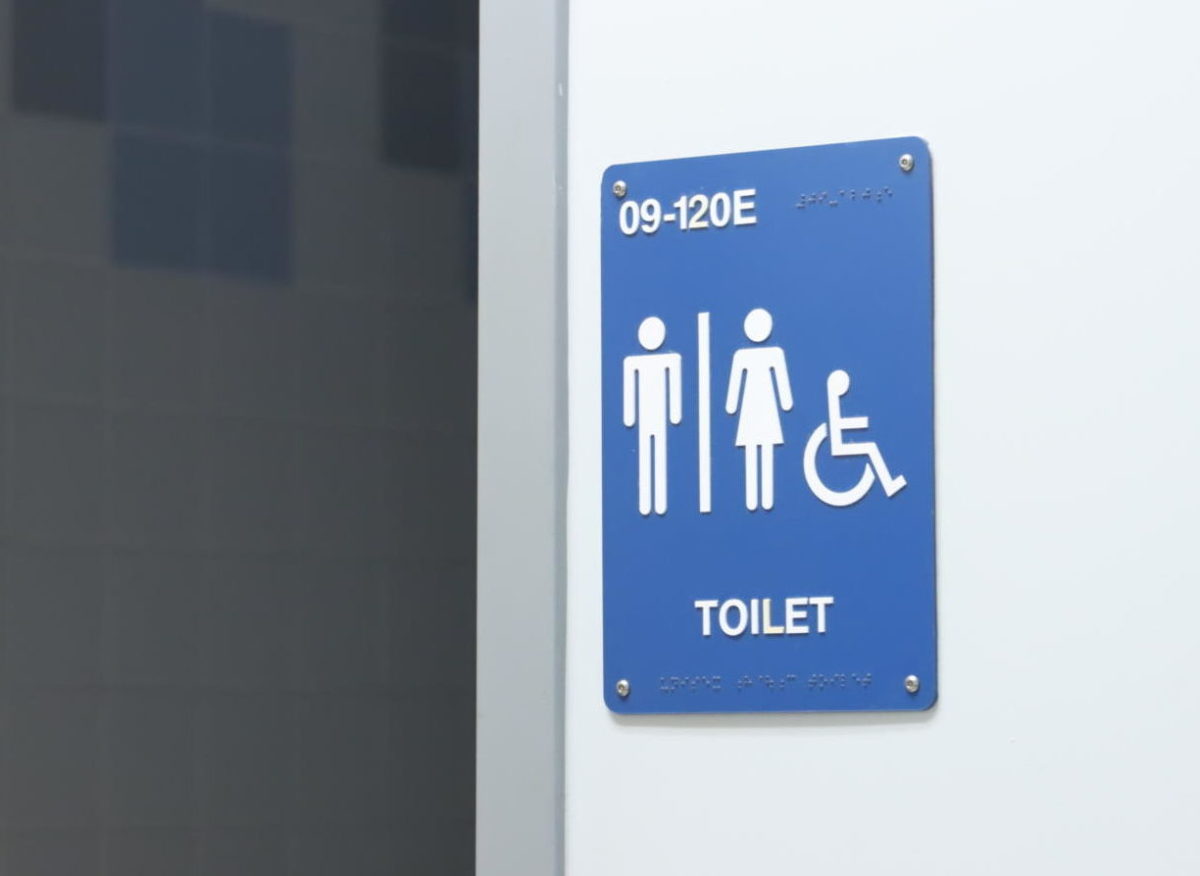On the first day of school, teachers greet their incoming students with cheerful welcomes and hellos, but now a simple saying of “Good morning, Rob” could get a Florida teacher’s license revoked.
On July 1, new state legislation under Florida House Bill 1557, popularly known as the “Don’t Say Gay Law” but formally addressed as the Parental Rights in Education Act, ruled that no teachers may address students by anything other than their legal name without parent permission. The bill states that the Florida Department of Education must “reinforce the fundamental right of parents to make decisions regarding the upbringing and control of their children in a specific manner.” Applicable to students who go by common nicknames such as Rob for Robert or Jenn for Jennifer, the interpretation of this act led Seminole County Public Schools to develop a nickname form for parents to fill out before the first week of school. Sent via email, parents can permit teachers to refer to their child by their preferred nickname, allowing the school to abide by state protocol. However, a percentage of parents showed their disapproval by submitting a variety of nicknames for their children—many of which were satirical. These demonstrations of annoyance and complaint have emphasized the upset shared between teachers, parents and students.
“I’ve been called CJ for the entirety of my school career,” senior Christie Hosea Knowles IV, who got the permission formed signed, said. “Parents are supposed to be building their children into young adults, and part of that is letting them come into their own individuality—nicknames are a part of that process.”
In addition to HB 1557, transgender students may no longer use the bathrooms which correspond with their gender identity. For example, a transgender male student may not use the men’s bathroom, but they are permitted to enter the women’s restroom, despite how far along they are in their transition. This development was instituted in May by Florida Senate Bill 1674, also known as the Safety in Private Spaces Act. The bill states that “females and males should be provided restrooms and changing facilities for their exclusive use in order to maintain public safety, decency, and decorum.” The bill further provides its own definition of the terms sex, male and female, making transgender individuals a clear target. In contrast to the name of the act, this ruling puts transgender students in danger through invalidation, discomfort and potential harassment from classmates.
Informed two weeks before the start of the school year, principal Robert Frasca anticipated feedback from all affected by the legislation. However, to comply with state law, no other alternative solutions besides the forms could be proposed.
“My job as principal first and foremost is to make sure that we’re following the law, school board policy and all those types of things,” Frasca said. “I have to make sure that what we’re doing on campus follows that.”
At their Aug. 4 back-to-school meeting, Frasca notified staff of the laws and their potential repercussions. According to Frasca, if a parent were to file a complaint against a teacher for calling their child by a name other than their legal one, the district’s Human Resources department would investigate the incident, where if seen as “guilty,” the teacher could potentially have their teaching certificate revoked. To prevent this hypothetical, Frasca advised teachers to refer to students by their legal last name if it felt more comfortable for the individual, giving teachers an option that follows state law while also respecting their students’ wishes.
“Finding ways to be respectful of kids while making sure that we are in compliance with the law I think is important for us as educators,” Frasca said. “I want our kids to know that we care about them and support them as human beings.”

While all students who go by nicknames have felt the effects of HB 1557, the biggest weight has been placed on LGBTQ+ students, specifically non-binary or transgender individuals who may go by a different name than they were given at birth. Despite the ease of filling out the form, not all parents may approve of their child’s identity or chosen name, forcing these students to be called by a name they may not be comfortable with. For Gay-Straight Alliance president Levi Cal-Rivera, who was informed of the law on the first day of school, this passing has brought him great concern for Florida’s LGBTQ+ youth.
“Honestly, in that moment I kind of felt my heart sink because I knew how many students were losing their safe space outside of home,” Cal-Rivera said. “A lot of kids had a more accepting and safer environment in school before the law was passed—it was a place they could feel comfortable as themselves within a community of friends and teachers.”
A similar feeling developed for English teacher and GSA sponsor Cameron Curran, who prefers to go by Ms. Rose to her students. After hearing that the law had been passed, Curran felt not only worry for the security of teachers’ jobs but the well-being of her students.
“I think your initial go-to is for the students who do want to go by an entirely different name, how that resource may no longer be available to them and how hurtful a message that is, essentially, saying that your autonomy and your indication are no longer valid,” Curran said. “It is absolutely silly, silly—that’s the best word I can come up with.”
Both Cal-Rivera and Curran’s concerns have shaped into a reality according to John*, a transgender male student. Although John has been out for almost three years to his friends and classmates, he has not come out to his family, leaving him unable to get the form signed by his parents. This has forced him to be deadnamed by his teachers and lose the once welcoming environment he had at school.
“My mental health has been on a rapid decline since the first day when I heard my deadname called and I was unable to correct my teachers—I can’t just be who I am with no remarks anymore,” John said.
The beginning of these effects can already be seen on campus, ostracizing students impacted. During class assemblies led by Frasca throughout the second week of school, clapping and cheers erupted across the auditorium when he notified students of SB 1674—a “celebration” of the new bathroom restrictions.
“I tried to dissuade that by telling students before even having a conversation that I know there is going to be a lot of personal opinions on this—asking them to be mature and to not react,” Frasca said. “I know there are students on both sides of this and whether they agree or not, that’s really not my business. My business was to make sure that everybody understands this is the expectation.”
Despite the student reactions, administration hopes to foster a sense of security and safety, opening up the media center’s private bathrooms as an alternative for affected students. According to Frasca, even before SB 1674’s passing, annual school surveys reported that 50% of Hagerty students felt most unsafe in the bathrooms. With both this data and the recent legislation, administration felt it was important to make the private stalls available to all students.
“My message to all our students is that through any change, we’re here to support all of our students and make sure that they have opportunities to have a great experience at Hagerty High School,” Frasca said.
The loss of preferred names and bathroom usage for many has left affected students searching for belonging, acceptance and validation, something that may no longer be available in the classroom.
“We are still human. We’re still whoever you originally met, just a little different,” John said. “I am still me—I’ve always been me, and these laws won’t change that.”
*name changed for privacy
This story was originally published on Hagerty Journalism Today on August 16, 2023.






































